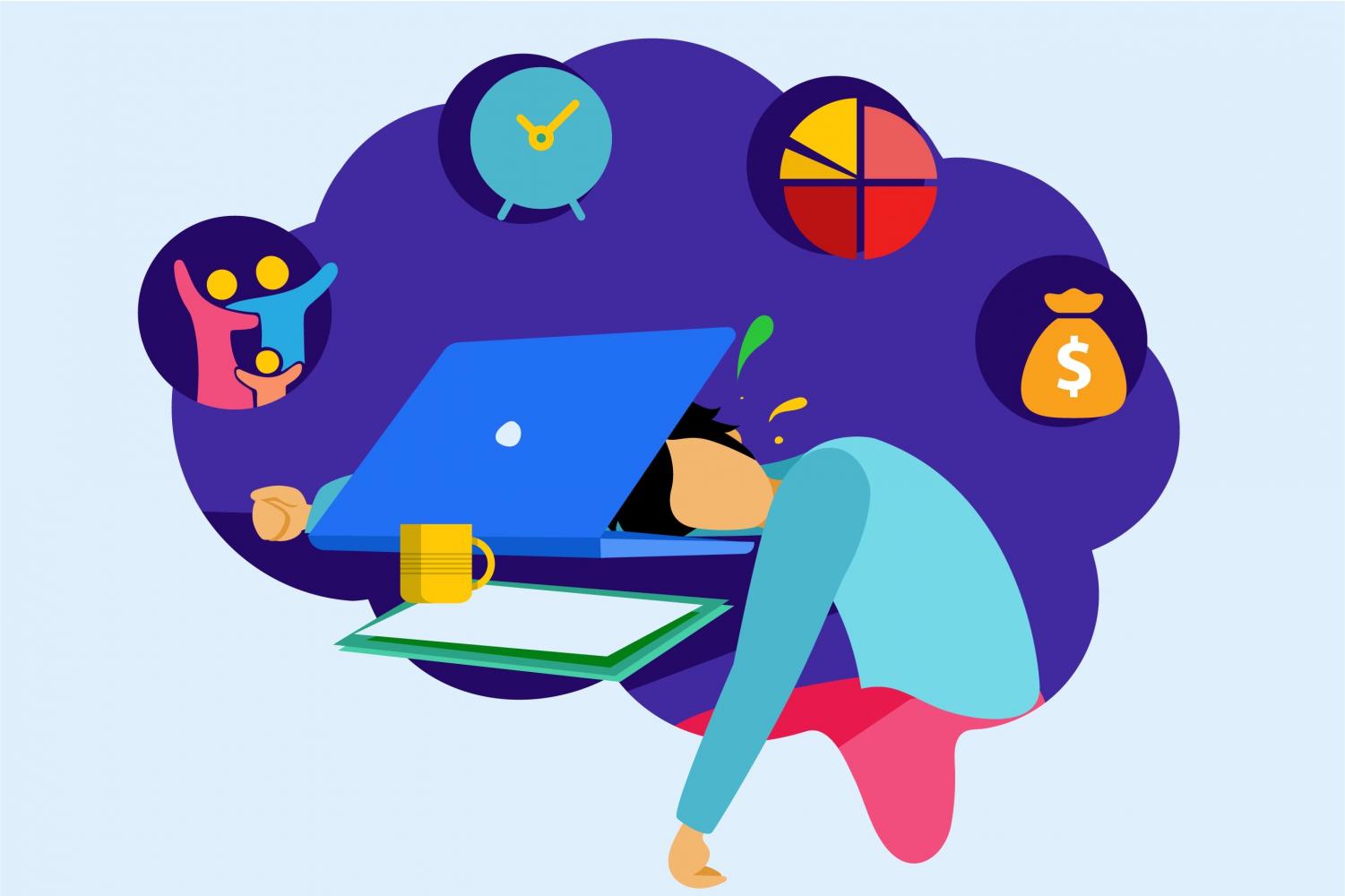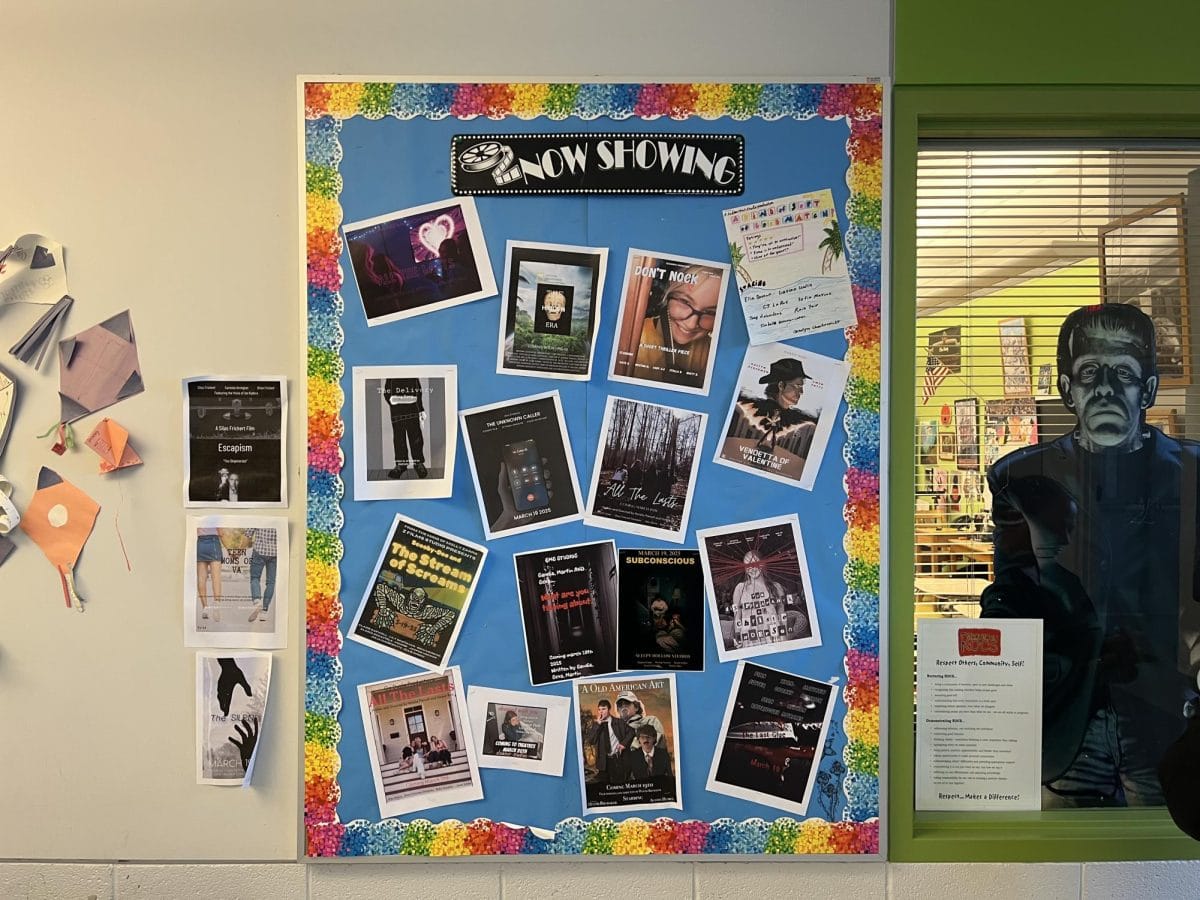When APS announced that school would be closing until after Spring Break, students, staff, and families likely felt unsettled. After Governor Northam declared that all schools in Virginia would be closed for the rest of the school year, these feelings may have become more intense for members of our community. Now, as individuals practice social distancing and quarantining, the loss of social connectedness may lead to feelings of loneliness and isolation which can be difficult to manage. As school psychologists, we know how hard it can be to deal with these emotions and offer the following suggestions to help maintain well-being:
Normalize feelings at this time. Recognize that everyone may respond to this situation differently and that is okay. Feelings may include anxiety, uncertainty, lack of control, frustration, disappointment (especially for seniors), isolation and worry for the health of yourself and others. It’s helpful to meet someone where they are in terms of providing a listening ear. Try to be understanding of others and recognize that everyone deals with stress in different ways. We are all having to adapt and be a little flexible. Remind yourself you are strong, resilient and capable, and remind others they are too!
Follow a routine each day. Routines can provide a sense of control and help us to do what we can during uncertain times. A regular routine helps us feel a sense of consistency, balance and predictability. Try to get enough sleep and go to bed/get up around the same time each day during the week. Eat meals at regular times and try to eat a balanced diet. Maintain regular contact with your teachers and follow a schedule of completing work just as you would during a regular school day.
Stay (safely) connected with family and friends. Even if you can’t be in the same space together, safe and responsible use of technology can help you feel connected to others and see them to check on each other. Some ideas include doing something new “together” (like watching a new show and discussing) and planning something fun to do together for when it is eventually safe to reconnect in person. It is also a good time to connect with those in your home … don’t forget about the people you are “stuck” with 🙂 Play a board game, watch a show or cook a meal together.
Manage stress in healthy ways. In addition to the uncertainty we may be feeling, all of the information coming at us as we try to stay current and connected can be overwhelming, and can leave us feeling even more unsettled and anxious. Check in with yourself, and build in breaks each day for self-care. Try a few minutes of deep breathing while focusing on a positive phrase or thought. Drawing, listening to music and journaling can all be great outlets. Or, get into something new. Explore an area of interest you’ve had but maybe never had time to check out. Also, while technology feels more important now than ever in keeping us informed and connected, try to take a few minutes each day to unplug. Do a few stretches, and try to get some fresh air and exercise (maintaining a safe social distance, of course). Take a look around and notice something that makes you smile or fills you with wonder. More than anything, be gentle and kind to yourself and to others. We are each challenged to create a new “normal” right now, and everyone is managing in different ways.
Take it one day at a time. Things have been changing rapidly and there are many more questions than answers, which can leave us feeling confused, unsettled and frustrated. Try not to project fears and worries about “what-ifs” that may be weeks or months away. Do what you can each day to stay in the moment, instead of focusing too much on things that are out of your control. Writing down your worries (as well as things you are grateful for), making a list of things to accomplish each day and mindfully meditating on a positive thought (e.g., “I am strong,” or “We’ve got this”) are all strategies that can be helpful to stay calm, centered and present.
Reach out! Students are encouraged to reach out to their teachers, counselor, assistant principal, social worker or school psychologist with any questions or concerns that arise as they navigate these ever-changing circumstances. We are all finding our way together, Yorktown!
____________________________________________________________________________
Additional resources to check out for tips for managing mental health include:
- https://greatergood.berkeley.edu/
- Mental Health and Coping During COVID-19 | CDC
- PSA from APS Interim Superintendent on Mental Health | APS
- How teenagers can protect their mental health during coronavirus (COVID-19) | UNICEF
- Coronavirus: Mental Health Coping Strategies | NAMI
- Resource Lists compiled by ACC | APS
Local resources regarding free meals for students include:
- Free grab-and-go breakfast and lunch for children ages 2-18 at Kenmore Middle School, and Drew, Barrett, Campbell and Randolph elementary schools. Meals are served from 11 a.m. – 1 p.m. Monday – Friday. On the Friday before Spring Break, April 3, APS will provide a week’s worth of meals to families who come to one of the sites to ensure they have food during Spring Break.
- Bayou Bakery and South Block (1515 N. Courthouse Rd.): Any APS student gets vegetarian meal from 11am to 1pm each day (in partnership with Arlington nonprofit Real Food for Kids)
- Joe’s Pizza Place and Pasta (5555 Lee Highway): Cheese pizza and salad from 5pm-7pm, Monday-Friday. Just call ahead at 703-532-0990
- Good Company Doughnuts & Cafe: (672 N. Glebe Rd.): Any student gets free meal from 7am-4pm, Monday-Friday
- Jaleo (2250-A Crystal Dr.): Meals to go, seven days a week, 12pm-5pm
- Good Stuff Eatery (2110 Crystal Dr.): Students 5-17 years old get a free meal 7 days a week
More community resources which may be helpful:
- Unemployment information: http://www.vec.virginia.gov/unemployed/online-services
- Food assistance for Virginians who qualify. Information on meal services for children by texting “food” or “comida” to 877-877







































Rsadauskas • Apr 9, 2020 at 7:47 am
Thank you, Solange and Bethany! Stay healthy!